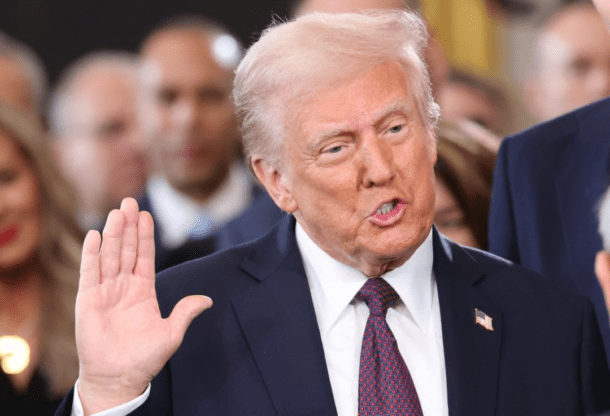In a bold move, U.S. President Donald Trump signed an executive order attempting to end birthright citizenship, a right enshrined in the 14th Amendment of the U.S. Constitution and upheld by the Supreme Court for over 125 years.


The executive action, signed on Monday as part of a sweeping immigration reform package, directs federal agencies to cease issuing citizenship documents to children born in the United States under specific circumstances.
The order targets children of undocumented immigrants, temporary visa holders, and non-citizen parents lacking legal permanent residency.
“As commander in chief, I have no higher responsibility than to defend our country from threats and invasions, and that is what I’m going to do,” Donald Trump stated during his inaugural address.
Legal and Constitutional Debate
The 14th Amendment guarantees that “all persons born or naturalized in the United States, and subject to the jurisdiction thereof, are citizens of the United States.” However, Donald Trump’s directive challenges this long-standing interpretation.
The order stipulates that it will not apply retroactively and is slated for enforcement within 30 days. Nevertheless, advocacy groups, including the American Civil Liberties Union, filed lawsuits in federal court mere hours after its issuance, asserting that the action violates constitutional rights.


Expanded Immigration Measures
Donald Trump also issued additional executive orders aimed at tightening immigration controls, including suspending U.S. asylum laws under what he described as “extraordinary presidential powers.” He authorized federal authorities to repel or remove migrants at the southern border, citing an “invasion” and concerns over public health.
The president’s directive grants the government the authority to bypass established asylum laws until he declares the southern border secure.
Public and Legal Reactions
Critics argue that these measures undermine fundamental rights and could provoke a prolonged legal and constitutional crisis. Advocacy groups and political opponents have pledged to resist the executive orders in court, while Trump’s supporters hail them as necessary steps to protect national sovereignty.
As legal battles loom, the executive order marks the beginning of a contentious chapter in U.S. immigration policy under Trump’s second administration.







